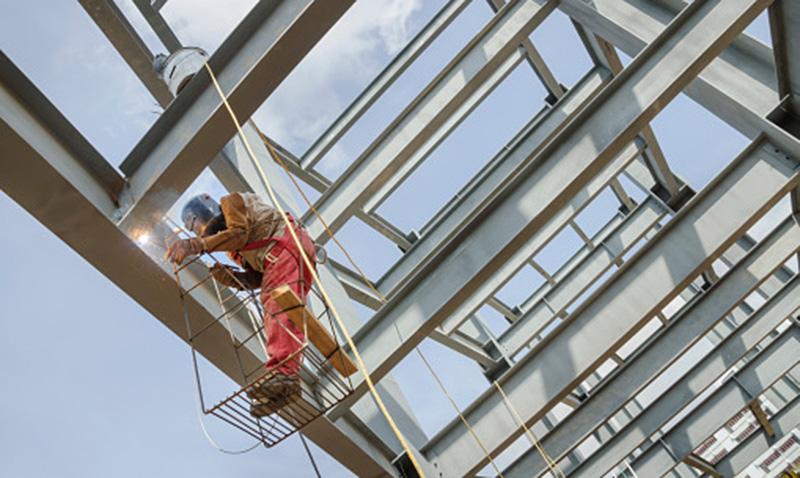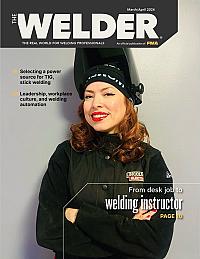Contributing Writer
- FMA
- The Fabricator
- FABTECH
- Canadian Metalworking
Categories
- Additive Manufacturing
- Aluminum Welding
- Arc Welding
- Assembly and Joining
- Automation and Robotics
- Bending and Forming
- Consumables
- Cutting and Weld Prep
- Electric Vehicles
- En Español
- Finishing
- Hydroforming
- Laser Cutting
- Laser Welding
- Machining
- Manufacturing Software
- Materials Handling
- Metals/Materials
- Oxyfuel Cutting
- Plasma Cutting
- Power Tools
- Punching and Other Holemaking
- Roll Forming
- Safety
- Sawing
- Shearing
- Shop Management
- Testing and Measuring
- Tube and Pipe Fabrication
- Tube and Pipe Production
- Waterjet Cutting
Industry Directory
Webcasts
Podcasts
FAB 40
Advertise
Subscribe
Account Login
Search
Lessons learned in a welding career
Save money and be safe
- By Marty Rice
- May 13, 2015
- Article
- Arc Welding
I concluded the last chapter of my crazy welding career on a sad note concerning the death of my friend. I would have another sad experience on the same job when another ironworker fell to his death.
It is a dark, depressing day when someone is hurt or killed on the job. You really feel for their families and the loss of a buddy. Then you feel your vulnerability and realize it could very well have been you.
That first day back to work is some kind of spooky and there is an eerie quiet, except for the noise of the machinery, because no one is in the mood for conversation. I had many brushes with death on the job and got hurt twice, the second time badly.
But here I'm going on to better times. Welding in the field is a rough way to make a living. You're at the mercy of the weather and the economy. I've worked in -40-degree chill factors and next to 1,700-degree blast furnaces. Been so cold I couldn't feel my fingers and toes, and so hot that I couldn't see from the sweat dripping in my eyes. (That really wasn't cool because I was in an elevator shaft that was already so dark I could hardly see anyway! That's where I learned to carry a bandana because my shirt was too sweaty to wipe the stinging sweat out of my eyes.)
The weather you can learn to deal with. I think I've written about a guy I worked with who wore pantyhose while doing repair work on the Mackinac Island Bridge in Michigan. I asked if he would have been embarrassed had he gotten hurt and gone to the hospital, and he told me he would have worn a dress and high heels if it'd kept him warm!
I understood, because I've been cold, so cold I thought I'd go crazy. People who tell me they'd rather be cold than hot have never been cold enough. Heat is rough, but cold is misery. (Of course, working in Dallas in July in 110 degrees and major humidity ain't no picnic either! Then you'd hear me whinin' for cold weather.)
The economy is more complicated, because unlike the regular schedule of the seasons, it jumps up or crashes down when you least expect it. I've seen it change overnight, and once I even came into work in the morning to find the company we were working for gone. No crane, no equipment, no trailers…GONE! And that meant no check either. Actually, two checks. When you work in the field, some companies hold your first week's check back and pay you the second week. That's great at the end of the job, because you leave with an extra check, two weeks' worth of pay.
Holding back the first week isn't good, though, if you are broke when you start the job! That's why you should always save at least 10percent of your paycheck. All kinds of things can happen that'll cause you to need those "rainy day" bucks. A few that happened to me were:
- I hit a big rock, which blew out my passenger side tires and ruined the rims on my truck. No truck, no drive to work; no drive to work, no pay. New rims, new tires, and realignment equaled big bucks out of my pocket.
- A huge blizzard hit, followed by an ice storm and subzero to subfreezing temperatures for a month, which resulted in about three days of work the whole month. Even when it cleared up, the steel was buried under the snow. No steel to erect, no steel to weld. Three days of work doesn't pay many bills.
- During a recession in the ʼ80s, I drove to locals in seven states and none of them had any work.
- A high-rise project completely shut down indefinitely because the steel plant had incorrectly fabricated the steel for several floors.
- I dislocated my kneecap and wasn't able to work for a month. (I was swinging for a home run in a dadgummed softball game on July 4th.) Not only did I lose a month's wages, but had to pay the emergency room bills also. Zero days worked in a month does not pay the bills! All for the chance of a home run, and I didn't even hit the dadgummed ball!
I could go on, but suffice it to say you need to save.
Things happen, save 10 percent, at least 10 percent!
Charlie
I met Charlie on the second unit of a powerhouse I was working on. He was in his 60s, but could still walk the steel as good as any 20-year-old. (We sometimes carried a 50-ft. section of welding lead on each shoulder. Add your tool belt at about 30 lbs. and that's quite a load, especially on those 3- or 4-in.-wide beams, and especially for a guy who'd been doing it for 30 years. Younger guys, the ones with honor anyway, will try and help the older hands out as a sign of respect. And, likewise, an older hand with honor will help the younger hands learn the tricks of the trade.)
One time on the top floor of that unit (22nd, if I remember correctly) I had to walk across the outside perimeter beam to get to where I was gonna weld. A news crew was on the completed unit's roof doing a story. I had 50 ft. of lead on each shoulder, and although it balanced out as I walked, for some reason I lost my nerve getting ready to go across that last outside beam.
Working up high was freakin' awesome most of the time, but there were times that scared the heck outta me. Of course, I never would have admitted it, because I was too busy being macho. That day I literally had to talk my legs into walking because my brain was sayin', "Don't go!"
The news crew saw me with a determined look on my face goin' about my business. Thank God they couldn't hear inside my head as I was whimpering like a little girl and begging God not to let me fall.
On a big job like a big high-rise or powerhouse, you are working somewhere different almost all the time, sometimes two or three places in a day. I loved that, but I didn't love lugging all the tools and equipment up, down, or around the building.
So one cold winter day I saw Charlie sitting by himself with his legs dangling off the building, looking out into the abyss below.
Usually we went to a shack built on one of the floors below or on the ground to eat, but sometimes we ate right where we were working. I joined him for lunch to listen to some of his crazy stories. He took a big pull from a soda he'd just opened and handed it to me. "Does that taste flat to you?" I took a big drink and almost spewed it onto the workers below us because it was beer!
This guy would have a couple of beers for lunch every day. He had a fake wrapper he'd put on the cans that made them look like a soda can. Of course, nowadays he'd be fired in a heartbeat; things were different back then.
I've heard stories of ironworkers of old having a couple beers for breakfast in the morning. Working overseas in Germany years ago, I saw a case of beer with a load of bricks heading up a 5-floor-high scaffold. I imagine that is no longer done over there either.
It's dangerous enough in construction without drinking or drugging on the job. I tell my students that it is easy to get hurt working impaired, but far worse to hurt someone else and have to live with that.
Jobs are much safer than they were when I started in the great field of welding, but still quite dangerous. Never get in the comfort zone!
I learned a lot from Charlie, mainly that I didn't wanna be an old guy drinking beer up on the steel. I made it to the old guy part, and if I have a beer, it's while sitting in my easy chair, remembering guys like him.
Until next time, when I'll tell you about a nuclear weapons plant, Wild Bill, and roadkill. What a crazy job that was!
About the Author

Marty Rice
High School Career Center in Texas
Questions for the author can be e-mailed to vickib@thefabricator.com
About the Publication
subscribe now
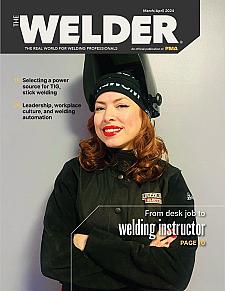
The Welder, formerly known as Practical Welding Today, is a showcase of the real people who make the products we use and work with every day. This magazine has served the welding community in North America well for more than 20 years.
start your free subscription- Stay connected from anywhere

Easily access valuable industry resources now with full access to the digital edition of The Fabricator.

Easily access valuable industry resources now with full access to the digital edition of The Welder.

Easily access valuable industry resources now with full access to the digital edition of The Tube and Pipe Journal.
- Podcasting
- Podcast:
- The Fabricator Podcast
- Published:
- 04/16/2024
- Running Time:
- 63:29
In this episode of The Fabricator Podcast, Caleb Chamberlain, co-founder and CEO of OSH Cut, discusses his company’s...
- Trending Articles
Sheffield Forgemasters makes global leap in welding technology
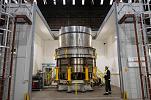
Welding student from Utah to represent the U.S. at WorldSkills 2024

Lincoln Electric announces executive appointments

Lincoln Electric acquires RedViking
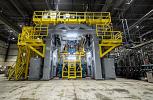
Engine-driven welding machines include integrated air compressors

- Industry Events
16th Annual Safety Conference
- April 30 - May 1, 2024
- Elgin,
Pipe and Tube Conference
- May 21 - 22, 2024
- Omaha, NE
World-Class Roll Forming Workshop
- June 5 - 6, 2024
- Louisville, KY
Advanced Laser Application Workshop
- June 25 - 27, 2024
- Novi, MI
























